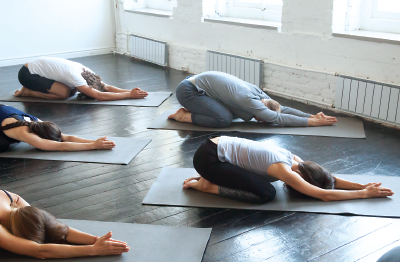Clinically induced hyperthermia is gaining interest as a new approach to treating clinical depression, with evidence from different studies starting to converge with promising results.
Among those evaluating hyperthermia for depression are Charles Raison, M.D., a psychiatrist at the University of Wisconsin at Madison; Maren Nyer, Ph.D., a psychologist in the Department of Psychiatry at Massachusetts General Hospital; and Johannes Naumann, M.D., an internist at the University of Freiburg in Germany.
Raison employed an infrared whole-body heat unit in his study, Naumann used whole-body immersion in a very hot bath, and Nyer studied people taking Bikram (“hot”) yoga. All three found statistically significant reductions in depression following these hyperthermic treatments.
In Raison’s initial research, 16 subjects received whole-body infrared heat and 14 received sham heat. The active group was exposed to infrared heat until the core body temperature reached 101.3 degrees Fahrenheit. The study, “Whole-Body Hyperthermia for the Treatment of Major Depressive Disorder,” was published in the August 2016 JAMA Psychiatry. The authors noted, however, that since the study lacked a placebo control, it is possible that the observed antidepressant effects may have resulted from nonspecific aspects of the intervention.
How hyperthermia may alleviate depression is not well understood, and Raison, in collaboration with Nyer, is planning a larger trial to try to identify the mechanisms involved.
Both Raison’s and Naumann’s research suggest that the greater the depression, the more pronounced the response. This is consistent with response to other treatments, including medication. While mild depression often responds to placebo, more severe illness does not. In part this may be a function of what is called “regression to the mean”—the more something deviates from average, the more likely over time that it will tend back—regress—toward the mean. But even taking regression into account, the results are encouraging, he said.
The degree of response in Raison’s study was significantly greater than in Naumann’s—about twice as much. It also involved much greater heat for a significantly longer time. While Naumann’s subjects were immersed in a hot bath for about 20 minutes twice weekly for four weeks, Raison’s subjects lay in an infrared unit for 100 minutes once.
In her open-label, eight-week study, Nyer evaluated 29 people who met criteria for major depression. Among those who attended Bikram at least twice weekly, there was a statistically significant improvement in depression as measured by the Hamilton Rating Scale for Depression (HAM-D) and Beck Depression Inventory. Nyer has received a five-year grant of approximately $740,000 from the National Institutes of Health’s National Center on Complementary and Integrative Health to conduct a larger, randomized evaluation of Bikram for depression. A description of Nyer’s original pilot from 2013 is available on the Massachusetts General Hospital website, and a summary of her ongoing research can be found under “Mechanisms of Hyperthermic Yoga for the Treatment of Depression” at the National Institutes of Health’s grantome.com website.
Two psychiatrists at Massachusetts General Hospital, Maurizio Fava, M.D., and David Mischoulon, M.D., Ph.D., have been her mentors. In an interview, Mischoulon pointed to Nyer’s work as a response to the need for alternatives to drug therapy.
“Antidepressants have limitations.” he commented. Not all patients respond to them or can tolerate the side effects. Alternatives, such as Bikram yoga, “may be more feasible and more acceptable for a lot of patients,” he concluded.
In Germany, where Naumann works, there have long been anecdotal reports that bathing in hot springs elevates mood. When he began the trial of 36 subjects, his team was skeptical that immersion in a very hot bath for short periods twice weekly could significantly improve severe depression. Subjects remained in the 104-degree Fahrenheit bath as long as they could tolerate—an average of 22 minutes each, Naumann explained. Measures of body temperature with an ear thermometer found an average increase from 98.4 to 102.4 degrees Fahrenheit.
“We thought in the beginning that severely depressed people might not react as strongly as they did, but they really improved a lot in a short time,” he said. After only two weeks (four hot baths) of the four-week trial, there was a statistically significant improvement as measured by the HAM-D. The study, “Effects of Hyperthermic Baths on Depression, Sleep, and Heart Rate Variability in Patients With Depressive Disorder,” was published online in March 2017 in BMC Complementary and Alternative Medicine.
As with others who are researching hyperthermia and other nonpharmacologic approaches to depression treatment, Naumann believes that the identification and development of a wider range of treatment options that may better meet patients’ preferences and encourage treatment compliance is well worth the effort. ■
“Whole-Body Hyperthermia for the Treatment of Major Depressive Disorder” can be accessed
here. “Mechanisms of Hyperthermic Yoga for the Treatment of Depression” is available
here. “Effects of Hyperthermic Baths on Depression, Sleep, and Heart Rate Variability in Patients With Depressive Disorder: a Randomized Clinical Pilot Trial” is located
here.


